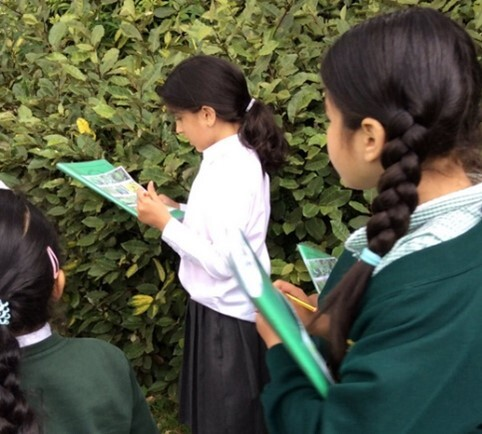Science
From when our children arrive in Nursery or Reception, through to when they leave us in Year Six, we teach them the foundations for understanding the world around them through the study of science.
Our pupils come to us with a wide variety of experiences of the world around them and it is our job to build upon and enhance these experiences and help them to make sense of them.
Our St Patrick’s Science Curriculum
We follow the EYFS framework in Nursery and Reception and the National Curriculum in Years 1-6, which set out the knowledge and skills children should have by the end of each Key Stage.
Early Years Foundation Stage Framework
National Curriculum for Science
Science is a way of thinking that helps us to learn about the world around us. We develop children’s understanding of how scientists find things out. We teach children the skills they need to think and work scientifically:
classifying, testing, observing and measuring, using data, asking and answering questions and communicating.
This document shows what we do in each year group to build these skills:
St Patrick's Working Scientifically Progression of Skills
Through working scientifically, scientists develop a body of knowledge about how the world works.
We teach the children about these:
Biology: the processes that keep living things alive and how living things can be classified
Chemistry: how materials make up everything in our world, the properties we use to describe them and how they change
Physics: heat, light, electricity, magnetism, forces and about the earth in space
This document gives an overview of how we build children’s understanding of key ideas in biology, chemistry and physics from Nursery through to Year Six. Further detail can be found in the EYFS Framework and National Curriculum.
St Patrick’s Science Knowledge Overview
You can find out which science topic your child is learning about each term by clicking on their class page.
Making the National Curriculum Work for all of our Children
We have adapted the National Curriculum for our children by breaking the statutory objectives into smaller steps. This structured approach allows our teachers to develop children’s knowledge more effectively, helping all our children to be successful.
It also means children’s understanding of how scientists find things out (working scientifically) is developed alongside their knowledge of biology, physics and chemistry. Where the National Curriculum gives schools choices over content, we have specified exactly which choices we have made, to suit the needs of our children, our local area and our wider curriculum. Copies of our detailed curriculum documents are available on request from the school office.
Teachers use a range of strategies to help children to be successful. This could involve extra support from an adult, word mats, extra practice time, breaking a task into even smaller steps or scaffolds such as writing frames.
Our Science Lessons
Lessons involve a range of different activities. Some examples of these are 'hands on' exploration; questions and discussion; experiments and enquiries; teacher demonstrations; videos, writing, drawing and reading.
We revisit previous learning and use quizzes and other retrieval activities regularly to ensure children do not forget what they have learned and help them to make links between what they already know and new learning.
This also allows teachers to assess children's progress and to check that children have remembered what they learned in the past. If children have not remembered learning from earlier on in school, teachers can reteach it before moving on to the next learning.
We finish many topics with an elaboration activity where children celebrate and apply their new learning to a project in science or in a different subject area such as English, Art or Design Technology.
If you want to learn more about science at home with your child, here are some useful websites:
DK Find Out Online Encyclopedia
The Museum of Science and Industry (Manchester - free to visit!)














